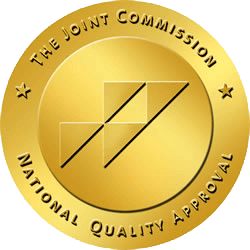When your adolescent child goes into a substance abuse treatment program, the setting of the program can make a difference. The treatment setting needs to be a strong match for each person’s individual needs, although some settings might benefit adolescents more than others. There are certain aspects of teenage substance abuse that have specific characteristics for only teenagers.
Outpatient Versus Inpatient Programs

Special Needs of Adolescents
Your child needs an inpatient setting that is designed for working with adolescents to have the most success in treatment. The National Institute on Drug Abuse, or NIDA, explains that a therapeutic community, or TC, type of residential treatment is the best for recovery2. This type offers around-the-clock care in an inpatient setting for half a year to a year. It provides a focus on psychological and social problems the person needs to change, helping him improve individually and socially through the center’s community. For example, in the right setting, a person can discover new ways of living and learn how to gain new social contacts. The social component is beneficial when the person needs to break friendships with peers encouraging the substance abuse and try to form new relationships. This TC setting is often advantageous to adolescents. These settings have greatly benefited the drug use, criminal, school and psychological outcomes even in hard-to-treat adolescents, according to NIDA. Adolescents in TCs have had long-term success, especially when they finished the treatment program3.
The Changes Made By a Therapeutic Community
TCs can modify their objectives to fit the unique needs of adolescents. To achieve that goal, TCs might make some or all of the following changes:
- Take adolescent development into account
- Include a school in the facility and/or focus on the importance of school
- Tone down the feeling of authority in the program
- Incorporate the family into treatment
- Include less confrontation
- Set up ongoing care for when the treatment program ends to encourage recovery and prevent relapse
Other Setting Considerations
When your child is in a peaceful setting he finds calming, it can help him relax and let go of the stressors that might have contributed to his substance abuse. In addition, the setting of the center might encourage your teen to think about how she’s living and options for her life. For instance, staying in an upscale facility might encourage her to want a better life and motivate her to go after it. Destinations To Recovery provides a relaxing and upscale environment for adolescents going through recovery. It also provides a community environment that encourages personal and social growth for a better life. If you’re looking for more information on how our program could help your adolescent child, contact us by phone or our website contact form to set up a free private assessment. To learn more about the effectiveness of residential treatment centers, give us a call at 877-466-0620.
References:
- What to Do if Your Teen or Young Adult Has a Problem With Drugs, National Institute on Drug Abuse, June 2014, http://www.drugabuse.gov/related-topics/treatment-research/if-teen-or-young-adult-has-drug-abuse-problem
- Principles of Drug Addiction Treatment: A Research-Based Guide (Third Edition), National Institute on Drug Abuse, December 2012, http://www.drugabuse.gov/publications/principles-drug-addiction-treatment-research-based-guide-third-edition/drug-addiction-treatment-in-united-states/types-treatment-programs
- Can Therapeutic Communities Treat Populations With Special Needs?, National Institute on Drug Abuse, http://archives.drugabuse.gov/researchreports/Therapeutic/Therapeutic4.html


